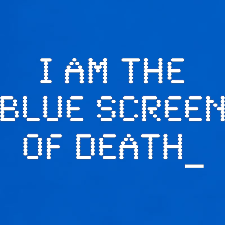06-28-2008, 01:24 PM
Facing the Truth About the American People
The book by Rick Shenkman bring some scary truths to the front regarding the American voters.
http://hnn.us/HowStupidAreWe/book.html
Only 2 out of 5 citizens can name the three branches of the federal government.
Only 1 in 7 can find Iraq on a map.
Only 1 in 5 know that we have 100 US senators.
Although more than 50% of Americans can identify at least two members of the Simpsons Family, only 25% can name more than one right guaranteed by the First Amendment.
Only 20% of young Americans between the ages 18-34 read a newspaper daily. An astonishingly low 11% report surfing Internet news sites.
A Washington Post poll in September 2003 found that 70% of Americans believed Saddam Hussein was responsible for 9/11. A majority continued to believe this even after the 9/11 Commission reported that the claim was groundless.
http://www.youtube.com/watch?v=vqDi1Vi-2qo
THE THOUGHT occurs to almost everybody, I would suppose, that politics today is conducted at a lower level than it used to be. Not many voted against William Howard Taft because he was fat or Abraham Lincoln because he was thin. One can't imagine Franklin Roosevelt being judged by how badly he bowled or how convincingly he knocked back a tumble of scotch. Indeed, studies show that the speeches presidents gave a half-century ago were pitched at the 12th-grade level - five grades above the level of speeches given by presidents over the last generation.
Which brings up a paradox. Decade by decade Americans are getting smarter and smarter, and decade by decade our politics is getting dumber and dumber. How can we explain it?
In 1940 six in 10 Americans hadn't gone past the eighth grade. Today, most Americans have attended college. Partly as a result of their added schooling, Americans today are more tolerant of dissent and less racist. But surveys show that increased schooling doesn't correspond to a higher aptitude for civics. To put this bluntly: Americans today are no better informed about politics than their grade-school educated grandparents. With respect to some subjects they are less well-informed.
The book by Rick Shenkman bring some scary truths to the front regarding the American voters.
http://hnn.us/HowStupidAreWe/book.html
Only 2 out of 5 citizens can name the three branches of the federal government.
Only 1 in 7 can find Iraq on a map.
Only 1 in 5 know that we have 100 US senators.
Although more than 50% of Americans can identify at least two members of the Simpsons Family, only 25% can name more than one right guaranteed by the First Amendment.
Only 20% of young Americans between the ages 18-34 read a newspaper daily. An astonishingly low 11% report surfing Internet news sites.
A Washington Post poll in September 2003 found that 70% of Americans believed Saddam Hussein was responsible for 9/11. A majority continued to believe this even after the 9/11 Commission reported that the claim was groundless.
http://www.youtube.com/watch?v=vqDi1Vi-2qo
THE THOUGHT occurs to almost everybody, I would suppose, that politics today is conducted at a lower level than it used to be. Not many voted against William Howard Taft because he was fat or Abraham Lincoln because he was thin. One can't imagine Franklin Roosevelt being judged by how badly he bowled or how convincingly he knocked back a tumble of scotch. Indeed, studies show that the speeches presidents gave a half-century ago were pitched at the 12th-grade level - five grades above the level of speeches given by presidents over the last generation.
Which brings up a paradox. Decade by decade Americans are getting smarter and smarter, and decade by decade our politics is getting dumber and dumber. How can we explain it?
In 1940 six in 10 Americans hadn't gone past the eighth grade. Today, most Americans have attended college. Partly as a result of their added schooling, Americans today are more tolerant of dissent and less racist. But surveys show that increased schooling doesn't correspond to a higher aptitude for civics. To put this bluntly: Americans today are no better informed about politics than their grade-school educated grandparents. With respect to some subjects they are less well-informed.









![[Image: Im_with_stupid_bg.jpg]](http://www.singaporecharlie.com.au/imagestshirts/Im_with_stupid_bg.jpg)

![[Image: StupidFence.jpg]](http://www.sharppillows.com/WebJPGs/StupidFence.jpg)